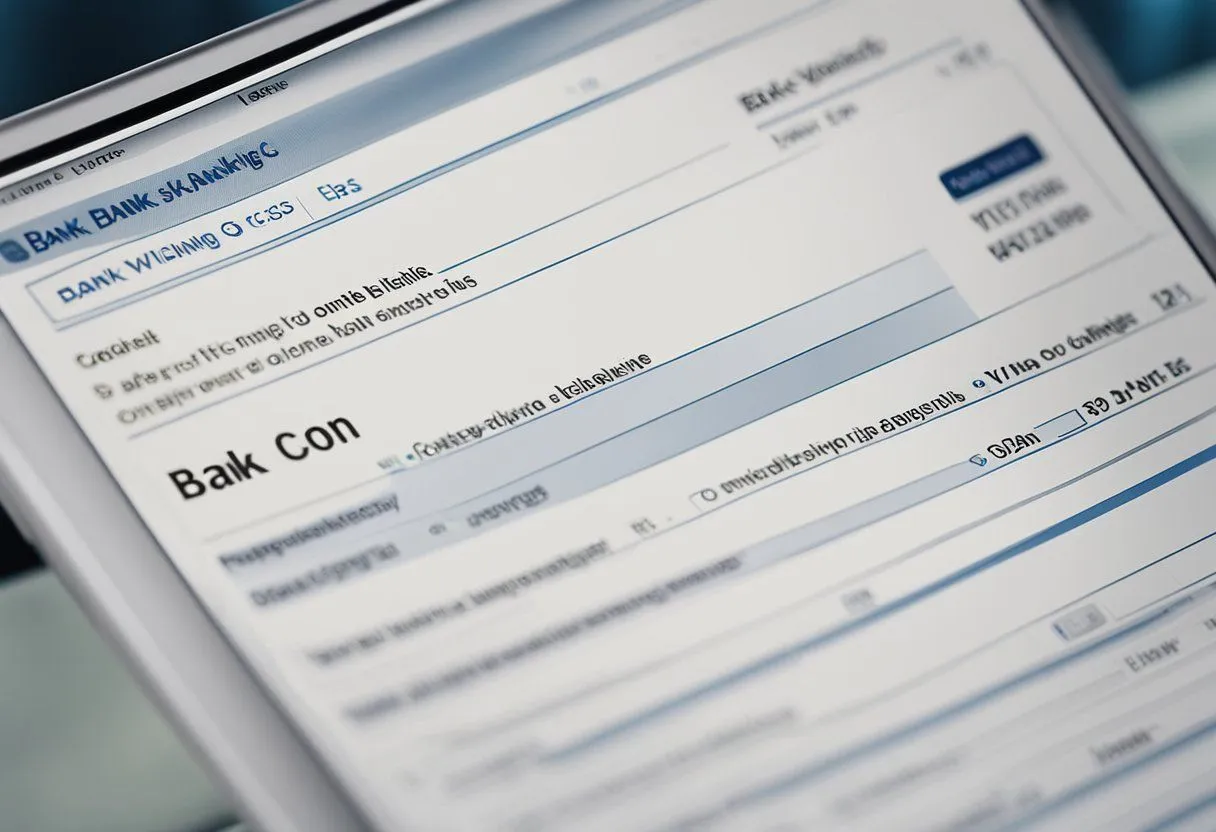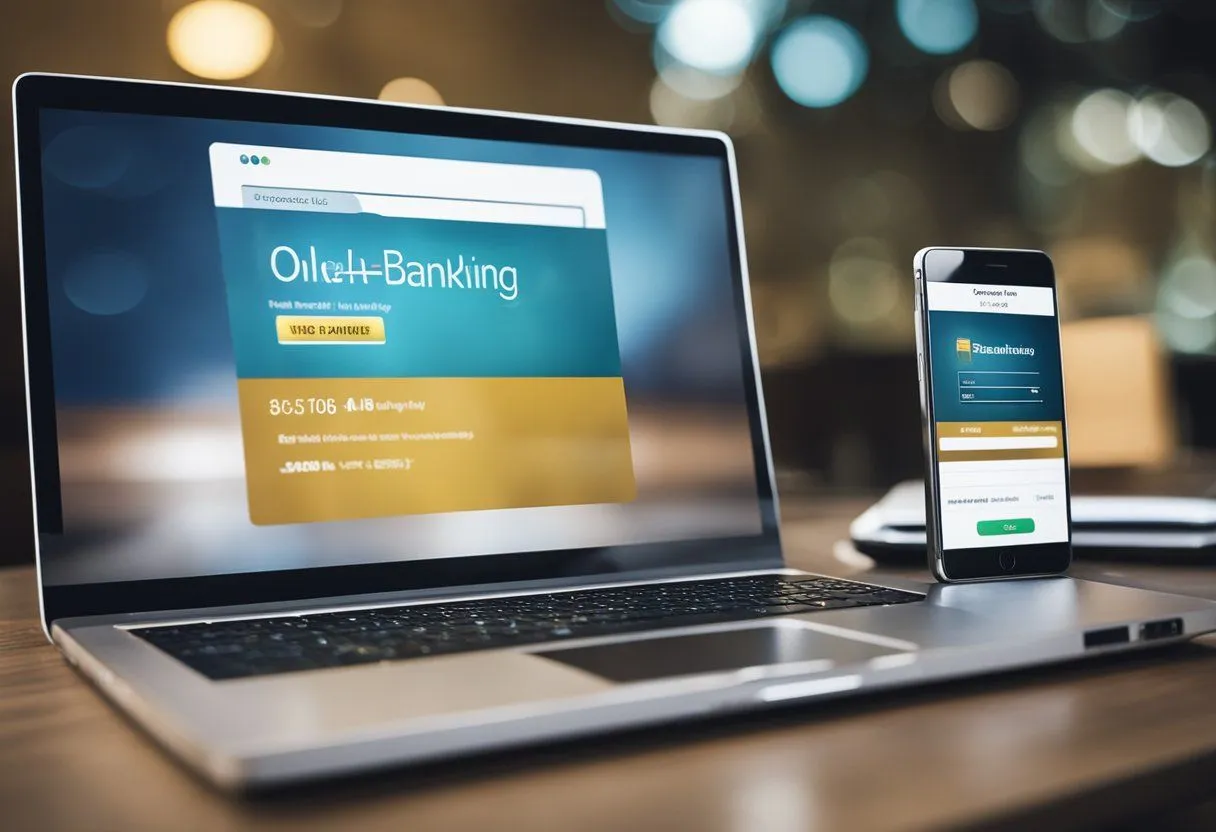The Pros and Cons of Online Banking: A Comprehensive Guide
Online banking has become increasingly popular in recent years, with more and more people opting to manage their finances through digital platforms. While online banking offers many benefits such as convenience, accessibility, and speed, it also has its drawbacks. In this article, we will explore the pros and cons of online banking and help you decide whether it’s the right choice for you.
One of the main advantages of online banking is the ability to access your accounts from anywhere, at any time. This means you don’t have to visit a physical bank branch during business hours, which can save you time and hassle. Additionally, online banking allows you to easily track your transactions and account balances, set up automatic payments and transfers, and view your account statements and history.
However, online banking also has its downsides. One of the biggest concerns is security, as online banking can make you more vulnerable to fraud and identity theft. Another potential drawback is the lack of personal interaction, which may be important for some people when it comes to managing their finances. It’s important to weigh the pros and cons of online banking carefully before deciding whether it’s the right choice for you.
The Emergence of Online Banking
Online banking has become increasingly popular in recent years due to the convenience and accessibility it provides to consumers. The emergence of online banking can be attributed to the digital revolution and increasing consumer demand for more convenient banking options.

The Digital Revolution
The digital revolution, which began in the late 20th century, transformed the way people communicate, work, and conduct business. With the widespread adoption of the internet and mobile devices, traditional banking practices were disrupted, and new technologies emerged to meet the changing needs of consumers.
Online banking was initially introduced in the 1990s as a way for consumers to access their accounts and conduct transactions through the internet. Over time, online banking has evolved to include a range of features, such as mobile banking apps, online bill pay, and remote check deposit, making it easier than ever for consumers to manage their finances from anywhere at any time.
Increasing Consumer Demand
As technology continues to advance, consumers have come to expect more convenience and flexibility from their banking services. Online banking has become a popular option for consumers who value the ability to manage their finances on-the-go and avoid the hassle of visiting a physical bank branch.
In addition to convenience, online banking often offers lower fees and higher interest rates than traditional banks, making it an attractive option for cost-conscious consumers. However, some consumers may still prefer traditional banking methods, such as in-person customer service and the ability to deposit cash or checks directly with a teller.
Overall, the emergence of online banking has transformed the banking industry and provided consumers with more options and flexibility when it comes to managing their finances.
Pros of Online Banking

Online banking has become increasingly popular over the years, with more and more people opting to manage their finances online. There are several advantages to using online banking, including:
Convenience and Accessibility
One of the most significant advantages of online banking is the convenience it offers. With online banking, users can access their accounts from anywhere, at any time, as long as they have an internet connection. This means that users no longer have to visit a bank branch during working hours to check their balance or make a transfer. Moreover, online banking services are available 24/7, making it easier for users to manage their finances on their own schedule.
Efficiency and Speed
Online banking is also more efficient and faster than traditional banking methods. Users can quickly and easily transfer funds between accounts, pay bills, and check their balance online. This means that users can save time and avoid the hassle of waiting in line at a bank branch. Additionally, online banking transactions are processed instantly, making it easier for users to manage their finances in real-time.
Lower Fees
Another advantage of online banking is the lower fees. Many online banks offer lower fees than traditional banks, which can save users money in the long run. For instance, online banks often have lower overdraft fees, ATM fees, and monthly account maintenance fees. Additionally, online banks typically offer higher interest rates on savings accounts and lower interest rates on loans, which can benefit users who are looking to save money or borrow money at a lower rate.
In summary, online banking offers several advantages, including convenience, efficiency, and lower fees. These benefits make online banking an attractive option for those who are looking to manage their finances more effectively and efficiently.
Cons of Online Banking

Online banking is a convenient way to manage finances, but it is not without its drawbacks. Here are some of the cons of online banking:
Security Concerns
One of the biggest concerns with online banking is security. Online banking requires users to enter sensitive information such as account numbers and passwords, which can be vulnerable to cyberattacks. Phishing scams, malware, and hacking are all potential risks associated with online banking. While banks take measures to protect their customers’ information, there is always a risk of a breach.
Technical Issues
Another potential drawback of online banking is technical issues. Online banking systems can experience downtime, making it impossible for customers to access their accounts. Technical glitches can also lead to errors in account balances or transactions. While these issues are usually resolved quickly, they can be frustrating for customers who need to access their accounts urgently.
Lack of Personal Interaction
Online banking is a self-service platform, which means that customers do not have the opportunity to interact with bank staff in person. This can be a disadvantage for customers who prefer face-to-face interactions. It can also be challenging for customers who need assistance with complex transactions or have questions about their accounts. While most banks offer customer support via phone or chat, some customers may feel more comfortable speaking with someone in person.
Is Online Banking Right for You
Online banking has become increasingly popular in recent years, offering convenience and accessibility to banking services. However, it may not be the best choice for everyone. Before deciding whether online banking is right for you, consider your banking needs and evaluate your comfort with technology.
Consider Your Banking Needs
One of the most important factors to consider when deciding whether online banking is right for you is your banking needs. If you frequently need to deposit cash or checks, withdraw large amounts of cash, or require in-person assistance, online banking may not be the best option. However, if you primarily use your bank account for everyday transactions such as paying bills, transferring funds, and checking balances, online banking may be a convenient choice.
Evaluate Your Comfort with Technology
Another important factor to consider is your comfort level with technology. Online banking requires the use of a computer or mobile device, as well as internet access. If you are not comfortable using technology or have limited access to the internet, online banking may not be the best choice. However, if you are comfortable using technology and have reliable internet access, online banking can provide a convenient and efficient way to manage your finances.
In conclusion, online banking can be a convenient and efficient option for managing your finances, but it may not be the best choice for everyone. Before deciding whether online banking is right for you, consider your banking needs and evaluate your comfort with technology.



